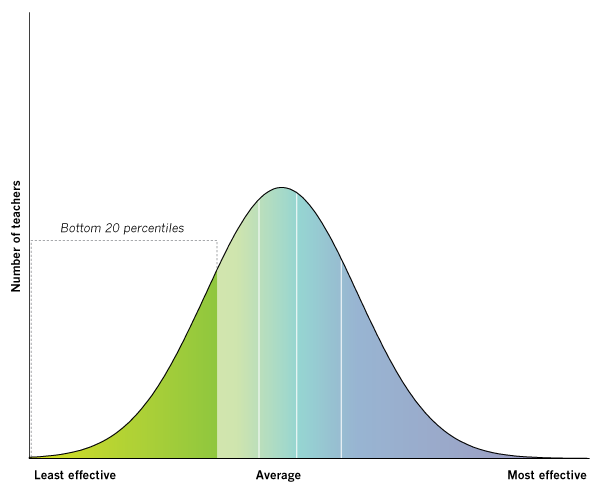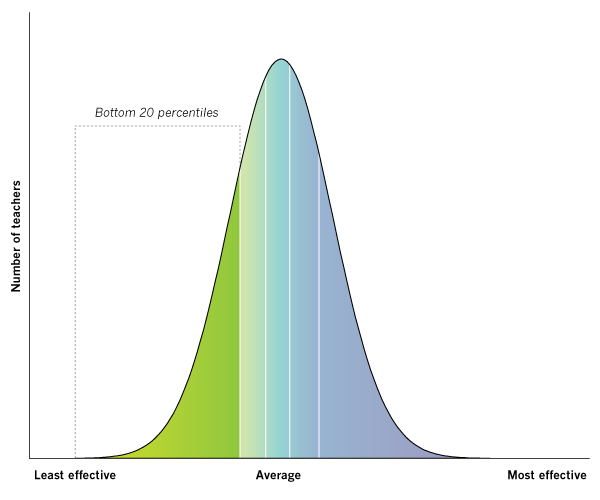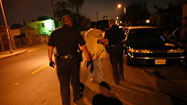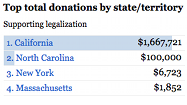Wende Ann Wawerchak
A 3rd grade teacher at Paseo del Rey Fundamental in 2009
These graphs show a teacher's "value-added" rating based on his or her students' progress on the California Standards Tests in math and English. The Times’ analysis used all valid student scores available for this teacher from the 2002-03 through 2008-09 academic years. The value-added scores reflect a teacher's effectiveness at raising standardized test scores and, as such, capture only one aspect of a teacher's work.
Compared with other Los Angeles Unified teachers on the value-added measure of test score improvement, Wawerchak ranked:
- Least effective overall.
- Least effective in math. Students of teachers in this category, on average, lost about 10 percentile points on the California Standards Test compared with other students at their grade level.
- Least effective in English. Students of teachers in this category, on average, lost about 7 percentile points on the California Standards Test compared with other students at their grade level.
Wawerchak's LAUSD teaching history
2002-03 through 2008-09 academic years
- Paseo del Rey Fundamental, 2009 - 2006
- Westminster Avenue Elementary, 2005 - 2003
Wende Wawerchak's Response:

Teachers are asked to wear a variety of hats every day - educator, mentor, disciplinarian, babysitter, role model, and often parent. They also come into contact with a diversity of students - each an individual, each with their own learning abilities and disabilities. Over the years, I have worked with students with ADD, ADHD, ODD, Asperger’s Syndrome, Depression, and Anxiety disorder. I must prepare for their individual challenges. Not only am I supposed to make sure that they access and master the standards but more importantly I need to get them simply focused on the task at hand which is learning. For 22 years I have seen first-hand that some students do not test well. I can only coach them to do better while providing them with the critical well-rounded education the student needs – oftentimes not what is found on a standardized test. In my classroom, they learn to be responsible citizens who respect themselves and others. There is no test question for this. To use data from a test as a main indicator of a teacher’s ability is ludicrous. Teaching to the test does not broaden the student’s outlook on life. In my case, how can you use data from two different school populations? Not only is each year a different set of parameters but so are the different schools. Also a year is missing between the two schools. How can that be? There needs to be more to a teacher’s effectiveness than test scores. Why not ask the parents what they think? They would certainly disagree with your data and say that I as well as many others have made a difference in the life of their children.
![]() The Times gave LAUSD elementary school teachers rated in this database the opportunity to preview their value-added evaluations and publicly respond. Some issues raised by teachers may be addressed in the FAQ. Teachers who have not commented may do so by contacting The Times.
The Times gave LAUSD elementary school teachers rated in this database the opportunity to preview their value-added evaluations and publicly respond. Some issues raised by teachers may be addressed in the FAQ. Teachers who have not commented may do so by contacting The Times.
|
|
 Delicious
Delicious
|
 Digg
Digg
|
 Facebook
Facebook
|
 Twitter
Twitter
|









